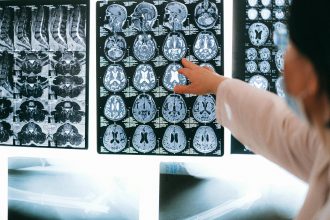Brain injuries can affect nearly every aspect of life — thinking, movement, emotions, and senses. Because the brain controls so many functions, symptoms vary depending on the injury’s type, severity, and location. Some signs appear immediately, while others emerge hours or even days later.
Recognizing the symptoms and warning signs is critical. Early detection not only saves lives but also improves recovery outcomes.
Why Symptoms Vary
No two brain injuries look the same. For example:
- A concussion may cause headaches and confusion but resolve in weeks.
- A severe traumatic brain injury may lead to coma, paralysis, or long-term disability.
- An acquired brain injury, such as a stroke or infection, may suddenly impair speech or memory.
The type of injury — concussion, moderate or severe TBI, acquired brain injury, or penetrating injury — shapes the symptoms a person experiences.
Common Physical Symptoms
- Headache, often persistent or worsening
- Dizziness or balance problems
- Nausea and vomiting
- Fatigue and sleep disturbances
- Blurred or double vision
- Ringing in the ears (tinnitus)
- Seizures (especially after severe injuries)
Cognitive Symptoms
- Confusion or disorientation
- Memory lapses, especially around the time of injury
- Difficulty concentrating or processing information
- Slowed thinking or problem-solving
- Language and speech difficulties (aphasia)
Emotional and Behavioral Symptoms
- Irritability and frustration
- Sudden mood swings
- Anxiety and depression
- Impulsivity or lack of inhibition
- Personality changes noticed by family and friends
These changes may be subtle at first but can deeply affect relationships and daily functioning.
Sensory Symptoms
- Sensitivity to light or sound
- Altered sense of taste or smell
- Visual field loss (blind spots or tunnel vision)
- Hearing loss or distortion
Red Flag Warning Signs
Some symptoms signal a potentially life-threatening emergency and require immediate medical attention:
- Loss of consciousness (even briefly)
- Repeated vomiting
- Worsening or severe headache
- Seizures
- Slurred speech or inability to speak
- Weakness, numbness, or paralysis on one side of the body
- Unequal pupils or changes in vision
- Clear fluid leaking from the nose or ears
- Unresponsiveness or difficulty waking up
If any of these occur, call emergency services immediately.
When Symptoms Appear
- Immediate: Some symptoms (loss of consciousness, vomiting, seizures) appear right away.
- Delayed: Others (trouble concentrating, fatigue, mood changes) may not emerge until hours or days later.
This is why monitoring after any suspected brain injury is essential — even if the person seems “fine” at first.
Long-Term or Persistent Symptoms
While many symptoms fade over weeks, others may linger for months or years, particularly after moderate or severe injuries. Examples include:
- Post-concussion syndrome
- Chronic headaches or migraines
- Memory problems and cognitive decline
- Emotional and behavioral changes
- Increased risk of epilepsy or dementia after repeated injuries
Conclusion
The symptoms of brain injury range from mild headaches to life-threatening emergencies. Recognizing early warning signs, knowing when to seek urgent help, and monitoring for delayed effects are critical steps in protecting brain health.
For families, athletes, and caregivers, awareness can be lifesaving. If symptoms are present after a fall, accident, or medical event, seeking immediate evaluation is always the safest choice.






